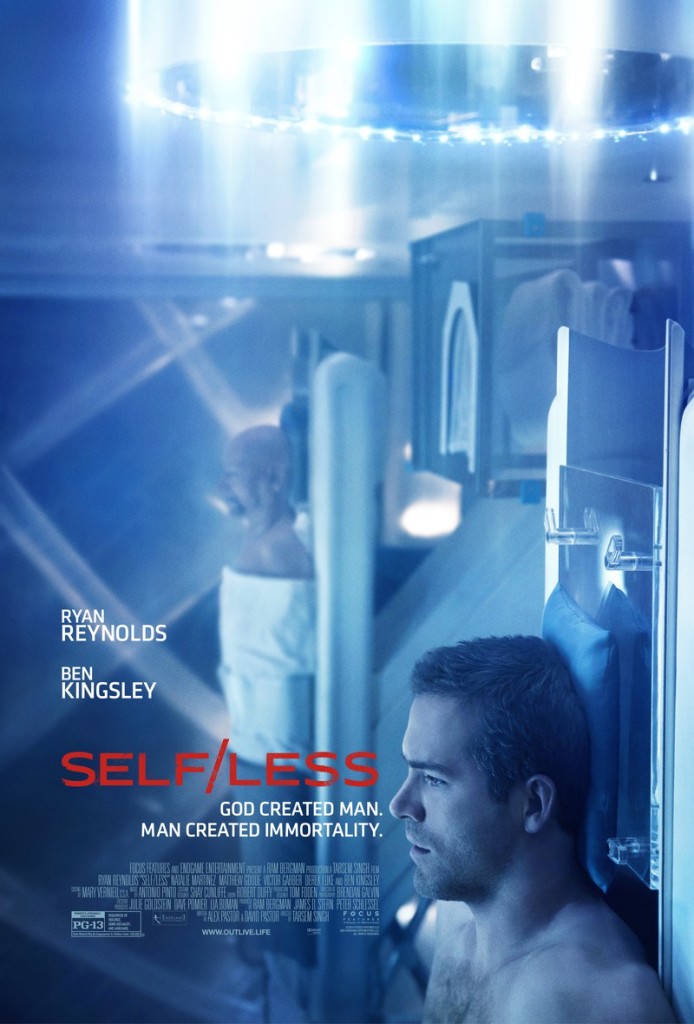
by Stephanie Palazzolo, managing editor
Billionaire Damian Hale (played by Ryan Reynolds and Ben Kingsley) has spent his entire life building his empire — trading time with his young daughter for overtime at work, crushing young rising leaders in order to hold onto his own position of power. And that’s when cancer hits. With only a few weeks to live, Hale turns to the extreme — a new process called “shedding” that will give him another lifetime to continue his work and a perfect body grown in a lab — or so he believes.
Although its premise seems interesting at first (Life-threatening diseases! “Shedding!” Moral and ethical conflicts! Whoa!), “Self/less” ultimately becomes a simple action movie cluttered with over-done tropes (A rich billionaire who now regrets not spending enough time with his daughter during her childhood? Car chases and shoot-ups? Totally unnecessary scenes where the main character gets laid? Excuse me while I yawn, although I’m not one to complain about a shirtless Ryan Reynolds.) “Self/less” just has so much promise and potential that the letdown when it fails to delve deeper into any of the issues is even more hard-hitting than it might have been otherwise.
For example, I want to know more about “shedding” — the process of transferring a consciousness from one human to another. Every movie expects the audience to just accept some facts going into the viewing, but “shedding” is such an intriguing idea that director Tarsem Singh could have spent more than a few minutes in the movie introducing the viewers to it. In addition, I’d like to see more of Hale’s thoughts on the ethical problems within the movie (which I’m trying really hard not to give away). Although he does seem conflicted, of course, the movie somehow chooses to focus more on collages of the women Hale has sex with and his driving skills than with the actually interesting part of the movie — how Hale goes from selfish to selfless.
In addition, the supporting characters seem to have little to do with the movie, with secondary character Madeline (played by Natalie Martinez) only tasks being to cry a lot and be in a constant stage of confusion. Reynolds and Kingsley are decent at portraying the main character, although their acting skills in “Self/less” aren’t that remarkable.
“Self/less” may market itself as a provocative and artsy movie, from the futuristic science to the moral conflicts, but unless you’d like to spend two hours watching car chases and gunfights, I’d pass on this one.

